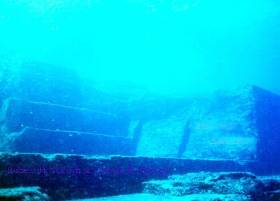
The sunken city, nearby Pavlopetri, is located in southern Peloponnese peninsula, only a few meters under the water. It’s in immediate proximity to the beach visited every summer by numbers of tourists and campers.
Eager to reveal the secrets of Pavlopetri sea area, a team of scientists from the British university Nottingham, in collaboration with their Greek colleagues from the Office of submarine archeology, are starting the explorations this month.
The scientists will employ a technology which will yield a detailed digital ultrasound picture of the sea-floor. Until now, this method has only been used for military purposes or in petrol-searching missions. For just a couple of minutes, this equipment can provide photo-realistic, 3-D digital sea-floor images, with an allowance of 1 mm. This technology, which Prof. Ion Handersen from the Nottingham University and the archeologist Ilias Spondalis from the Office of submarine archeology will use, may cause a revolution in under-water explorations.
What is known up to date is that the remains of the sunken ancient city date back to 2800 years BC, or earlier. Intact buildings, yards and streets can be distinguished, as well as later-dating graves, believed to be part of the Mycenaean epoch.
It is a known fact that the Mycenaeans were extremely dependant on their marine power but for now, very little is known about their harbors and flourishing sea-side cities, one of which was Pavlopetri. Up to now, the archeologists have only been interested in palaces and graves belonging to his epoch, situated inside the country.
Pavlopetri’s submerged remains have been discovered and filed in 1968 by the Cambridge University archeological team directed by Nicholas Fleming. Since then, however, no archeological researches on the area have been made. Forty years later, Dr. Ion Handersen will be the first archeologist to get an official permission to explore the area, issued by the Greek state.
The scientists have set their task of finding out about the history and development of the city, revealing the time it was built and, through systematic geo-morphological examination of the area, finding out when and why it sank.
According to Handersen, Pavlopetri is a rare finding and it is of great importance to archeologists; therefore “the examination should begin shortly in order for the city remains not to be lost forever- damages caused by tourism, divers and boat anchors can already be observed.” The exploration results are scheduled to be published in 2014.